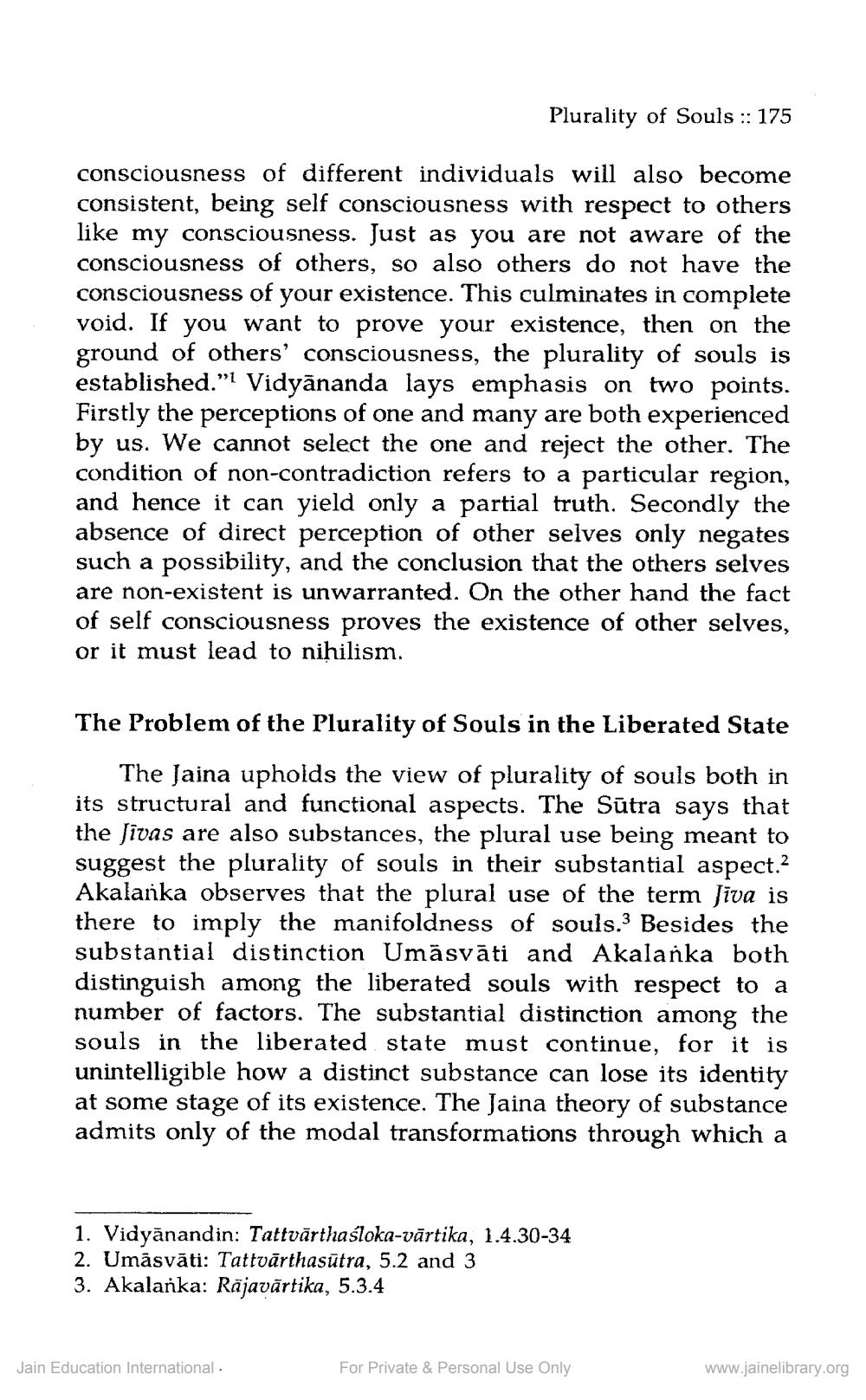________________
Plurality of Souls :: 175
consciousness of different individuals will also become consistent, being self consciousness with respect to others like my consciousness. Just as you are not aware of the consciousness of others, so also others do not have the consciousness of your existence. This culminates in complete void. If you want to prove your existence, then on the ground of others' consciousness, the plurality of souls is established." Vidyānanda lays emphasis on two points. Firstly the perceptions of one and many are both experienced by us. We cannot select the one and reject the other. The condition of non-contradiction refers to a particular region, and hence it can yield only a partial truth. Secondly the absence of direct perception of other selves only negates such a possibility, and the conclusion that the others selves are non-existent is unwarranted. On the other hand the fact of self consciousness proves the existence of other selves, or it must lead to nihilism.
The Problem of the Plurality of Souls in the Liberated State
The Jaina upholds the view of plurality of souls both in its structural and functional aspects. The Sūtra says that the Jivas are also substances, the plural use being meant to suggest the plurality of souls in their substantial aspect.2 Akalanka observes that the plural use of the term Jiva is there to imply the manifoldness of souls.3 Besides the substantial distinction Umäsvāti and Akalanka both distinguish among the liberated souls with respect to a number of factors. The substantial distinction among the souls in the liberated state must continue, for it is unintelligible how a distinct substance can lose its identity at some stage of its existence. The Jaina theory of substance admits only of the modal transformations through which a
1. Vidyanandin: Tattvärthasloka-vārtika, 1.4.30-34
2. Umāsvāti: Tattvārthasūtra, 5.2 and 3
3. Akalanka: Räjavārtika, 5.3.4
Jain Education International.
For Private & Personal Use Only
www.jainelibrary.org




